The Naked Scientists have been on a trip to Mars but we forgot to ask one BIG question, should we even be going at all? We complete the series with a debate featuring a space politician, a geologist, an astronomer and a would-be Mars pioneer. Plus, in the news, will faecal transplants change your personality, and how sci-fi has been predicting technology for years.
In this episode

01:10 - Better screening needed for transpoosion
Better screening needed for transpoosion
with Professor Tim Spector, Kings College London
Every year, more than 10,000 people in the UK suffer from a severe infection with Clostridium difficile - known as C.diff for short. It leads to severe long-term diarrhoea and inflammation in the intestine and can be life-threatening. Recently, the idea of faecal transplants, or "transpoosions" has been gaining traction - but, according to an article in the British Medical Journal by Tim Spector, from King's College London, there are some risks, as he explained to Kat Arney.
Clostridium difficile - known as C.diff for short. It leads to severe long-term diarrhoea and inflammation in the intestine and can be life-threatening. Recently, the idea of faecal transplants, or "transpoosions" has been gaining traction - but, according to an article in the British Medical Journal by Tim Spector, from King's College London, there are some risks, as he explained to Kat Arney.
Tim - It's been very hard to get figures, but the US is leading the world I think in this moment and there's one centre in Boston that has all these poo donors. It's supplying over 430 centres across the US on a regular basis and they're shipping something like 50 different treatments every single week.
Kat - What are the issues around having this relatively small pool of donors that is potentially treating so many people?
Tim - It's crucial that the donors that are being used both in the US and in the UK are properly screened because the obvious reasons like infections which is being pretty well dealt with. But the idea these people could transmit their microbes which stay with the other person for the rest of their lives is something a bit spooky and we haven't really thought about much. So, they could be transmitting microbes that are making them more tendency, to get fat. They could be transmitting microbes that make them more likely to be anxious or stressed or have some mental illness. And so, we really need to be screening these people very well to make sure that you don't replace one disease with another in a few years' time because we don't know the long term effects of these, and also realising that many people are - because they are relatively simple to do yourself - taking matters into their own hands.
Kat - Do we know whether there are any ill effects from poo transplants that have taken place either officially or DIY so to speak.
Tim - At least 6,000 or 7,000 recorded transplants that we know of have been done. Remarkably, few adverse events have been reported. There are a couple of anecdotal reports that two women gained weight after they had received some samples and they'd recovered from their infection. It turned out the donors were on the chubby side. Anecdotally, some people think they might have changed personality, but it's very subjective. So at the moment, it's a lifesaving operation that seems to have very few risks. But as people start to think about and we do trials for transplants in other less lifesaving conditions such as obesity, diabetes, colitis, irritable bowel syndrome then I think the balance of risk and benefits is going to be much more important.
Kat - So, how do we go forward from here? What is the future for poo transplantation?
Tim - Well hopefully, countries around the world are going to start setting up centres for this, invest some money with poo banks like they have in Boston. Regulations need to be changed because at the moment in the UK, we're not allowed to actually import the frozen poo from Boston although they've offered it, which is crazy because there's also people storing their own poo for when they get ill later because the best donor is going to be yourself. So, we need to start thinking about this and at the moment, we can store our own poo but it would break through any regulations to give it back to yourself.
Kat - How can we move forward with finding out more about how to use the power of the bugs in the gut?
Tim - I think one way is to start getting people used to testing their own microbes in the same way we currently test them for blood in the stool for colon cancer. Now, it's pretty simple. You can test it genetically, sending a sample via post on a cotton wool bud. No one is doing this on the NHS. I think we need some bigger organisations to start doing this and so, hospitals should have access to this. So donors or people thinking about it could actually look and see what their microbes really are before and after they have these transplants or they're thinking about them.
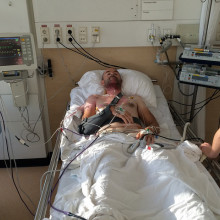
05:39 - Why vegetative state patients can't move
Why vegetative state patients can't move
with Dr Davinia Fernández-Espejo, University of Birmingham
Sometimes severe head injuries can leave a patient in what is dubbed a 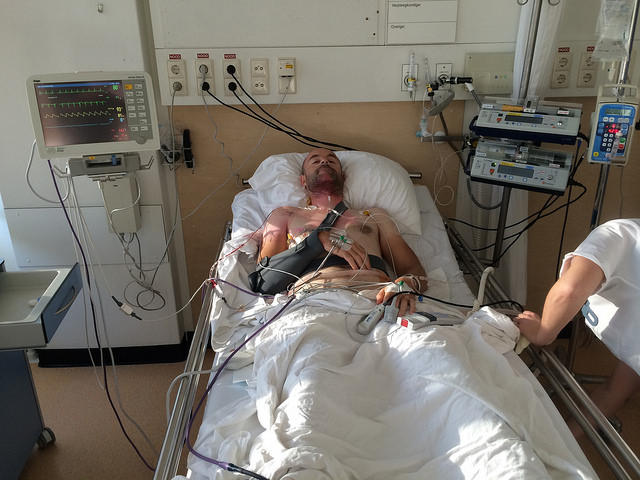 persistent vegetative state. But recently, using a brain scanning technique called fMRI, scientists were able to show that some of these people are conscious and capable of communicating with them, but were just not able to move. Now Davinia Fernández-Espejo's has uncovered why - there's a 'disconnect' in the brain which prevents the thalamus - a relay station in the centre of the brain - and the motor cortex - the area of the brain that produces movements - from exchanging information. Graihagh Jackson caught up with her to hear how...
persistent vegetative state. But recently, using a brain scanning technique called fMRI, scientists were able to show that some of these people are conscious and capable of communicating with them, but were just not able to move. Now Davinia Fernández-Espejo's has uncovered why - there's a 'disconnect' in the brain which prevents the thalamus - a relay station in the centre of the brain - and the motor cortex - the area of the brain that produces movements - from exchanging information. Graihagh Jackson caught up with her to hear how...
Davinia - So in this paper, we were looking for structural damage in the brain of patients who appear to be in a vegetative state. This is, they don't show any external signs of being aware of themselves, of the environment. But we do know that some of these patients are actually fully conscious. This is a small percentage of them and are just incapable to move. So, the first step we study was to try and identify awareness using these fMRI techniques asking them to imagine they were playing tennis, imagine they were moving their hands. Once we had a patient who we could confirm they were actually aware then we did the second part of the study.
Graihagh - And then my understanding is you also looked at healthy people and mapped what bits of their brain lit up as well.
Davinia - That's right. So, up until now, we were not entirely sure what the differences are between just imagining a movement or actually, physically performing that movement. And that was key in this study because this is the difference between the things that they can or can't do - these patients. So, they can imagine a movement, but they can't actually perform that movement. So we needed to see the difference between these two processes to know what were the areas are key for you to give this step further and actually move. And we found that there is a significant pathway which is the one connecting the thalamus which is the small region, kind of in the deep of your brain and the motor cortex which is the region that ultimately is going to send the signal to your limbs to move. So in a way, these two regions appear to be disconnected so the information can't travel from one to another and that's what's stopping these patients from being able to actually externally move.
Graihagh - That surprises me because you would've thought patient to patient, the structural damage in the brain would be very different, but you think it's down to this one sort of connection.
Davinia - Well, that's a good question. So, in this study, we focused on patients with a very specific type of damage which is traumatic brain injury from a car accident. What we don't know yet is whether this specific damage is going to appear also in patients of different aetiologies, and that will be the next logic step to this study.
Graihagh - What happens in these patients that means that there is that disconnect in the brain?
Davinia - So basically, when we're talking about a car accident, there's speed and sudden deceleration. What happens is that the fibres that are connected from regions of your brain break in the process. So, that ends up leaving regions that can't speak to each other again.
Graihagh - How common is this type of injury?
Davinia - It is very common. They're quite recent, so we only see these patients in the last few years. This is because we are talking about very severe accidents that before all the advances in the medical care wouldn't have survived the accident.
Graihagh - That's really interesting. I mean, I suppose it's great to show that we've had so much progression in this. But equally now, we've got a whole new other caseload of difficult things to solve.
Davinia - That's right. We're getting really good at solving problems in our organs and our body, but the brain is still something we're still kind of trying to understand.
Graihagh - Does that mean then, now that you've identified this blockage, that you can do something about it. Might there be a treatment down the line that could help these patients?
Davinia - Yeah and that's the most exciting thing about this finding. We're still very early in that direction, but I think it's a good first step. So, we can't regrow those fibres that are gone. That can't happen but we can do something to make those connections that are still present to work harder to try to compensate for the damage. There are several ways we can do this. We're still studying what's the best approach, but anything that you can think that could make those fibres that are still there work harder and make these two regions talk to each other could help these patients in the future.
Graihagh - How might you be able to make these connections work harder?
Davinia - So, there are several possibilities. One possibility could be a pharmacological treatment and there's also a number of brain simulation techniques that can help give these regions a little push to try and work a little bit harder.
Graihagh - So, how far away do you think are we from this type of thing? I know you said this is sort of a good first step. How long are we looking at here?
Davinia - Yeah. That's difficult to tell. We're starting to try some of these ideas about how to simulate some of these regions now. So, we're still a few years away from knowing the answers to this.
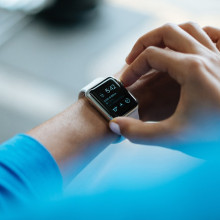
11:21 - Sci-fi inspired technology
Sci-fi inspired technology
with Peter Cowley, Tech Investor
Does the date October 21, 2015 mean anything to you? Well, if you're a fan of 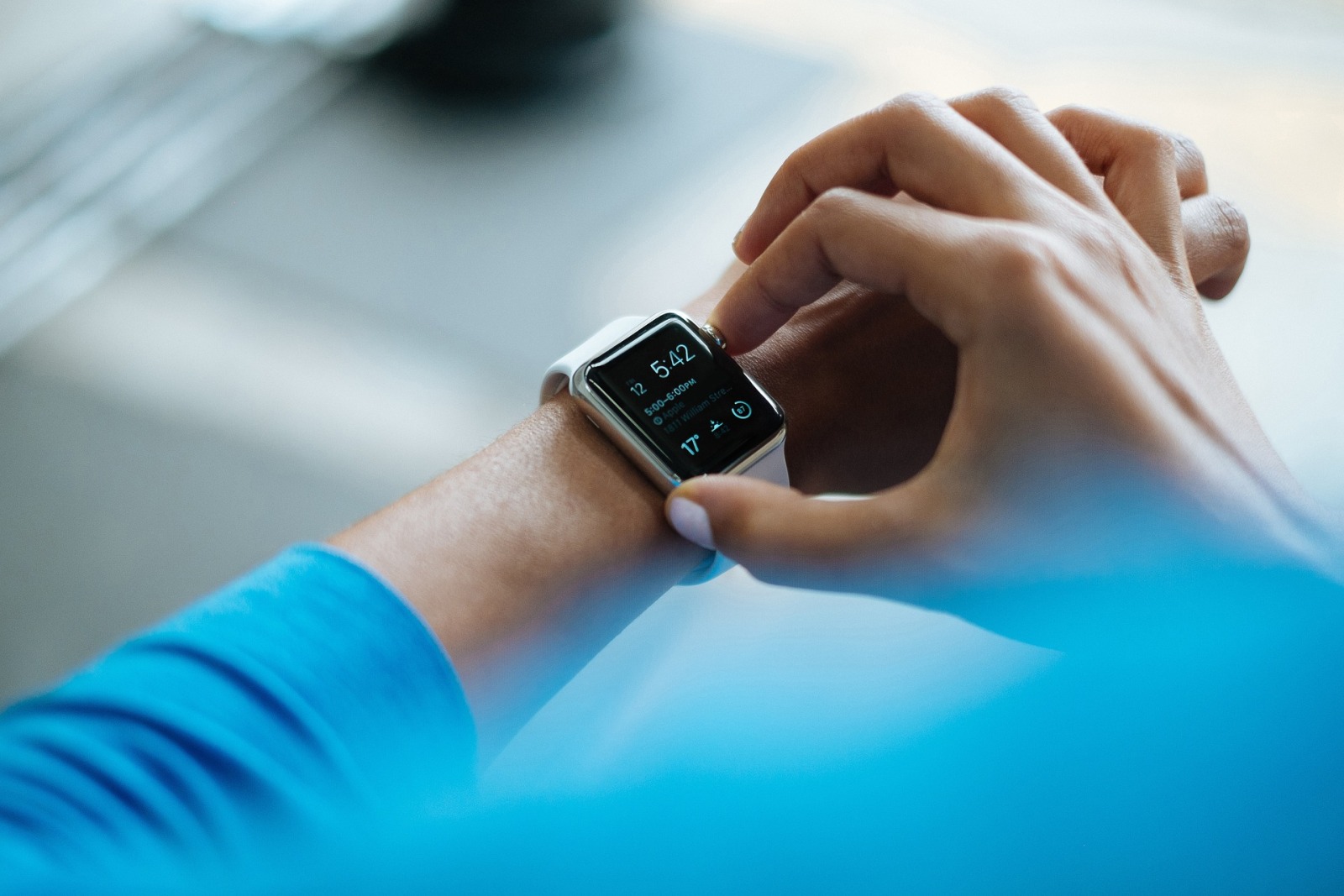 Back to the Future, then it should do: it was the date that Marty McFly and Doc Brown traveled to in the movie, thirty years ago. Peter Cowley and Chris Smith discussed which of the technologies that the duo experienced in their futuristic 2015 have actually been invented, they started with wearable technology.
Back to the Future, then it should do: it was the date that Marty McFly and Doc Brown traveled to in the movie, thirty years ago. Peter Cowley and Chris Smith discussed which of the technologies that the duo experienced in their futuristic 2015 have actually been invented, they started with wearable technology.
Peter - Let me first say that the last time I saw this film was in 1986 so I can't remember the film. I should have watched it again recently. He was talking into his jacket so some of microphone and speaker system, which as you've probably seen people wandering around streets at the moment with their new watches, actually talking to their wrists. So wearable technology built into clothes fibre which is a conductor. There's huge amounts of work going on there. Nothing that's yet sort of a killer application for it, but lots of interesting stuff, a bit like internet things, lots of new ideas, but haven't yet been adopted.
Chris - The other thing that's quite big in the film is video conferencing. They make a really big thing of that and that of course has come to pass, the idea of sort of talking to each other on a big screen.
Peter - Yes. You could do that using PC. In fact, you can do that using video conferencing probably 20 years ago. You could do it on our own laptops and PCs probably 10 or 15 years ago. But it's when the smartphone came out about 8, 9 years ago, as it made a big difference. Of course, with facilities on there such as Skype and then FaceTime, it's made it very easy to do that.
Chris - The other thing that Marty gets ripped up about by a bunch of people in the shopping mall is he goes into an arcade and wants to play a game using a joystick. They were going, how 20th century is that because it's all about just moving your hands around to move things. That's just basically the Wii, isn't it?
Peter - Yes. In fact, it's more than that. You may not know but some cars now are starting to get gesture control so that you don't have to take your fingers off the steering wheel in order to move your fingers around.
Chris - I thought you're going to say, you didn't have to have your hands on the steering wheel.
Peter - I was watching some Tesla's 7.0 software came out and people don't need to. There are some really quite frightening videos on the internet at the moment about that.
Chris - So you can drive hands free.
Peter - You can let go. You can press a button like you could do with cruise control and then a steering control effectively.
Chris - Because everything that Tesla have got is a charging robot, which comes up to their car and then connects itself to charge the car up and that was something that was made a big thing of in Back to the Future because they drive into a fuelling station and there's this robot that comes along and fills your car with fuel. It's very, very similar although Tesla's one is slightly smaller. So, that's something that's come to pass.
Peter - Yeah. It doesn't seem necessary that really because the induction loops will be available before long. In fact, I think you can get an option for Tesla or other cars possibly where you just park it in the garage, it will charge it without any form of contact.
Chris - What about these self-tying shoelaces? That would be wouldn't it?
Peter - Would it be good?
Chris - I'm quite intrigued by that one.
Peter - I don't know. I'm getting older. In fact, it turns out actually that I was...
Chris - Well, you use this as an index of your own ability like, "I could still tie my shoelace therefore, I'm okay."
Peter - It's like Google glasses. If that ever gets adopted, I'd be able to recognise people in the street then when I get older.
Chris - Well actually, Nike have said that they are going to bring out some kind of self-tying shoe fixer by the end of this year.
Peter - There's a patent that's been...
Chris - Is it going to get realised?
Peter - What is the point to this?
Chris - For people who can't tie up their shoelaces, one presumes.
Peter - Then why don't they just have slip-ons? What's special? I mean, if you've got special shoes personally for running or for mountain climbing, one hopes you're subtle enough to get to your feet.
Chris - So, you don't think that's going to catch on.
Peter - I don't see the reasons to catch.
Chris - Even if it does tie itself up.
Peter - I don't know Chris, honestly.
Chris - What about other films and things that have had a sort of a look and they've been based in the future?
Peter - The film I really enjoyed the most was 2001: A Space Odyssey in a very geeky way which came out in the late '60s. There were things in there that Arthur C. Clarke had sort of made some futuristic guesses at. Things like the tablets. Have you seen the film, Chris?
Chris - Well, a long time ago.
Peter - Yeah. There's a point where he seems to be eating a variety of different sorts of mustards or something and he's got a tablet in front of him - he's watching some sort of movie or something on there. What's interesting is that Arthur C. Clarke had not foreseen the fact that touchscreens would be around, which is about right because touchscreens only were patented in the late '60s, early '70, and he wrote the book in '68. So, it's still got buttons on it. Clearly, that's come about though only in the last 10 years.
Chris - The interesting thing about Back to the Future is that they totally missed the boat on smart telephones, didn't they? In the film, everyone's got a fax machine. They seem to think that fax machines were going to be ubiquitous. Everyone was going to have one of those, almost a fax machine on your wrist and I don't know why they went down that route.
Peter - No. It was strange because it late enough that the personal computer have started to come around. The Apples were produced in volume and lots of other manufacturers, the IBM PC of course have come out as well. So, who knows why they didn't. An email was around as well for academics. They're not for the general consumer.

16:15 - Males with fewer sperm shout louder
Males with fewer sperm shout louder
with Dr Jacob Dunn, University of Cambridge
It's sometimes claimed that men buy fast cars and large camera lenses, amongst other things, to make up for deficiencies in other areas. But this behaviour may not be unique in the animal kingdom: now scientists at Cambridge University have shown that howler monkeys, which are natives of South and Central America, do something similar with the sounds they produce. Connie Orbach went to meet researcher Jacob Dunn to hear how...
other things, to make up for deficiencies in other areas. But this behaviour may not be unique in the animal kingdom: now scientists at Cambridge University have shown that howler monkeys, which are natives of South and Central America, do something similar with the sounds they produce. Connie Orbach went to meet researcher Jacob Dunn to hear how...
Jacob - What we found was that there was a really close relationship between the size of this hyoid bone which a sort of big cup-shaped bone in howler monkeys which they use for resonating sound around, and making a really low frequency call. That closely matched the number of males that they had in each of the species. And so, those species that just had one male usually in a neat group tend to have a very big vocal organ whereas those species that have multiple males tend to have a very small vocal organ. What we also found is that there's a really close relationship between the size of this bone in the throat and the size of their testes. So, species that had a very big vocal organ had very small testes and species that had a very small vocal organ had very big testes.
Connie - So, let me get this right. Loud road (recording), smaller testicles, but big harem. Small roar (recording), bigger testicles. So, it seems the howler monkey just can't have both. But what's it got to do with how many other males there are?
Jacob - We know species that tend to live in groups with just one male. They try and defend groups of females very aggressively and in different species that have more males in the group, there's no longer the need for this male-male shouting competition. But because females will often copulate with several males within the group, so the sort of pressure shifts towards them having to compete for each other after they've copulated with the females. And so, they evolve bigger testicles so that they can produce more or faster sperm.
Connie - Okay, so that makes sense. Now, this hyoid bone must be quite something to have such a big effect. What does it even look like?
Jacob - In humans, it is a very simple little bone. It fits on top of the larynx just under the chin in the throat it's a little horseshoe-shaped bone. But howler monkeys have evolved this different kind of shape to their bone. They've turned it into a sort of bulbous expanded cup-shaped thing which they actually have some soft tissue as well that they blow into, it's a sort of air sac. But it varies hugely from species to species. So, the males have much bigger hyoids than females. But even within the males across the species, there's 10-fold variation from the smaller species to the biggest.
Connie - Is this a model you've got here or is it a real skull?
Jacob - No, this is a cast.
Connie - And this is the hyoid bone.
Jacob - Yup.
Connie - It's a really, really weird-looking bone. It's half a balloon-shaped almost and it seems to be sat kind of right underneath the jaw there. So, why can't they have both? Why do they have to have one or the other?
Jacob - We don't know the answer to that fully yet, but there are two different ways or at least two different ways that this might work and it could be that both of them are working at the same time. One of them is that there is sort of limited energy to be able to invest in different things. The expression of these kinds of traits are costly. There might just not be energy available to do both of those things during development. That will be one mechanism. The other system would be that once you're sort of down, one evolutionary trajectory, there's kind of no point in investing in both. So, as you become a species that has a big hyoid bone which means that you produce a really low frequency call, you become so dominating that your social system becomes that of just one male in the group.
Connie - There's those classic arguments about big cars or flashing their cash is maybe compensating for something else, but do we actually see this in people ever, a trade-off?
Jacob - It has been only once that is as far as I know where they've looked at this kind of trade-off. They found something really interesting actually. They found that the voices of men when played back to women that were judged to be more attractive also had low quality sperm. Which suggests that there might also be this sort of similar kind of trade-off, but it certainly suggests that something might be going on and I wouldn't be surprised if there really is.
(Sounds copyright The Macaulay Library at the Cornell Lab of Ornithology)
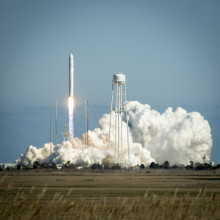
21:49 - Destination: Mars, what we've learnt
Destination: Mars, what we've learnt
with Sue Nelson, Libby Jackson, UK Space Agency, Stanley G. Love, NASA, Dr Paul Meacham, Airbus Defense, David Rothery, Open University, Tony Milligan, King's College London
In the last three programmes we've been considering the prospects of manned 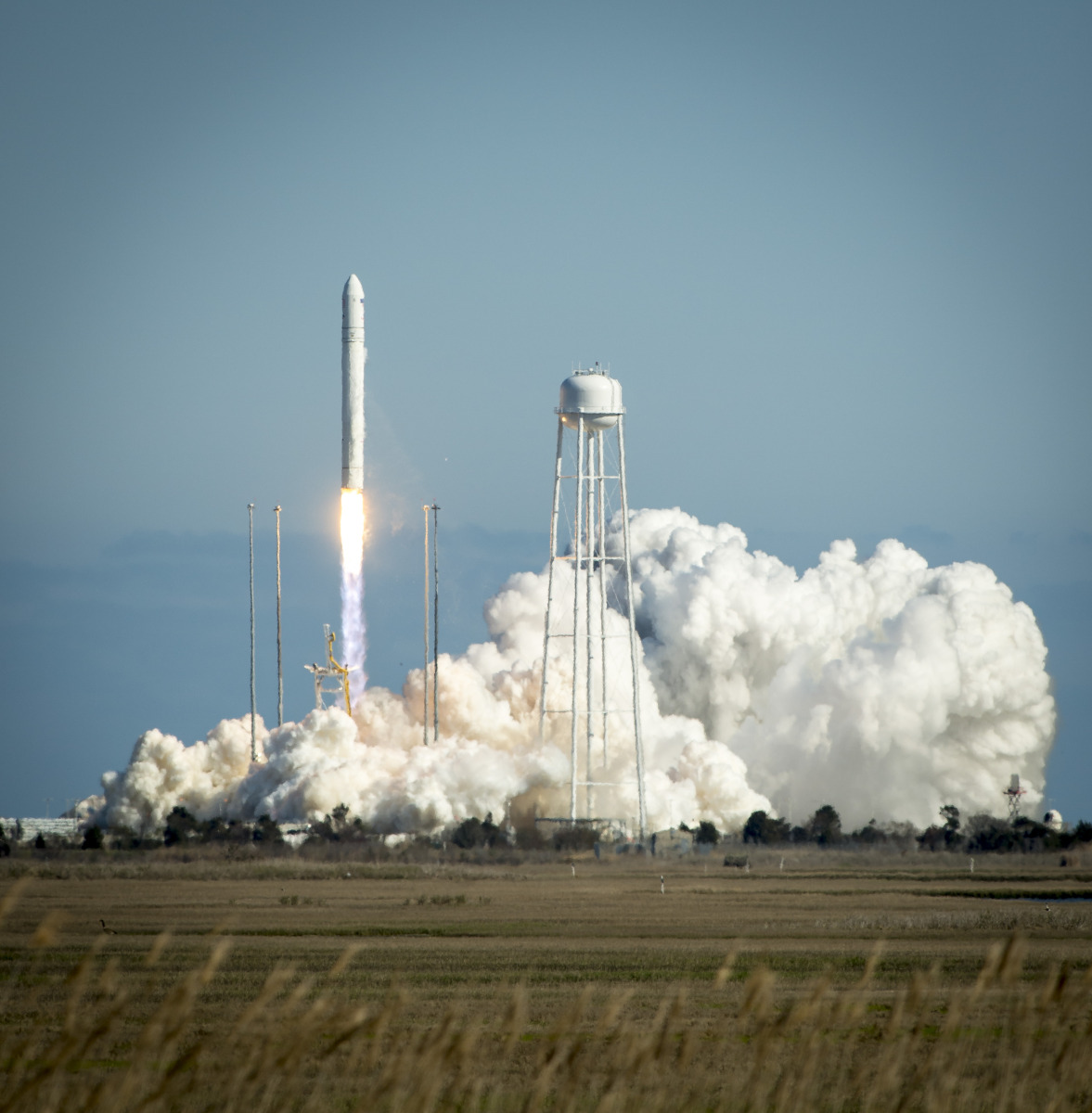 missions to Mars. We've looked at what it takes to be an astronaut, how to get people across interplanetary space, and last week we heard how we might go about building a base on the Red Planet. Connie Orbach takes us through what we've learnt.
missions to Mars. We've looked at what it takes to be an astronaut, how to get people across interplanetary space, and last week we heard how we might go about building a base on the Red Planet. Connie Orbach takes us through what we've learnt.
Connie - Here at the Naked Scientists, we've been on a trip - destination Mars. We've learned what it takes to be an astronaut from stomach churning training...
Sue - I expect I look like a St Bernard dog. I can feel my hands really pressurised. It's difficult to lift my hands. That feels like you've done the biggest roller coaster ride ever.
Connie - To the hundreds of silent workers who put our heroes in space.
Libby - You've got the engineers who design these things. There are the people who built it, there the medics, there are doctors, there are the lawyers, there are the people like myself looking after the education programme. The list is truly endless.
Connie - Even the bravest astronaut may still quake in their boots when they hear the journey conditions.
Graihagh - Two weeks without a shower?
Stanley - Well, imagine turning off the gravity and turning on the shower. Water would go flying everywhere. So, if you want to take a bath, it's going to be a sponge bath.
Connie - Oh, and all the other hazards.
Paul - Probably, the main consideration is the radiation environment. We're leaving the protection of the Earth's atmosphere and you are then subject to the full force of solar wind and cosmic radiation. We're well aware of the effects of radiation on the human body. It does not do nice things and you've got to fly through that for 9 months.
Connie - Once there, there's a whole host of new problems especially if you want to stay for a while.
David - If we want to survive, we go somewhere that's warm and cosy and has resources. If you want to go somewhere warm, that's rather incompatible with finding somewhere where there's accessible ice if you want water.
Connie - Finally, if we've worked out all of that, we're going to have to consider the long term impacts of settling on Mars.
Tony - Whereas it may be the case that the initial settlers could come back to Earth if things go badly. For those born on Mars, it's extremely unlikely that their physiology could cope with a return to Earth. Their bone density wouldn't be right for it. so, we have to get this right.
Connie - Well, after all that and a whole trip to Mars, we realised we've forgotten to ask one big question... should we even be going at all? What do you think? When we asked this question on Facebook, Michael McLaughlin made a good point...
Michael - Robotic exploration is safer, less costly, returns amazing science and image results.
Connie - So, why not just stick with robots?
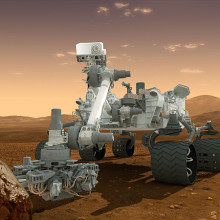
25:37 - Exploring Space: Robots vs Humans
Exploring Space: Robots vs Humans
with Dr Sanjeev Gupta, Imperial College London, Dr Carolin Crawford, University of Cambridge, Ryan MacDonald, Mars One Candidate, Richard Hollingham, Space Boffins, Dr Kevin Fong
What can we learn from exploring Mars and are humans better than robots? Chris 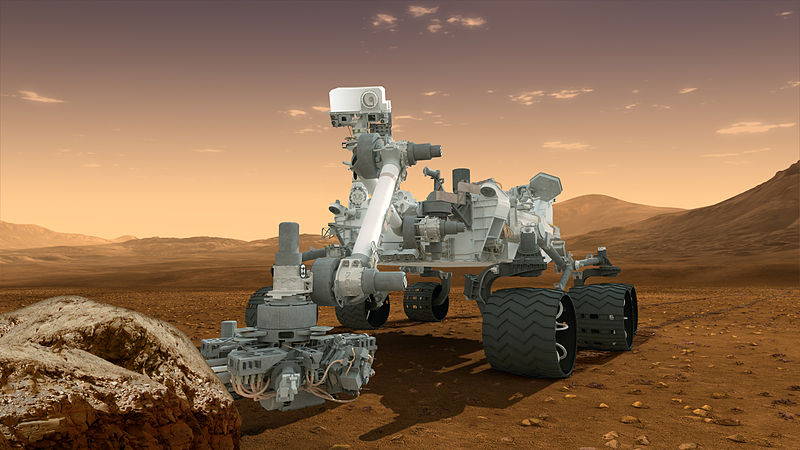 Smith asks our panel about the scientific argument for human space travel. We started by considering the case for robots.
Smith asks our panel about the scientific argument for human space travel. We started by considering the case for robots.
Carolin - I think it's a no-brainer. Certainly in the short term, robots are the way to go. We've just heard about some of the hazards that humans face. Even if you can get them to Mars in one piece then the dangers on the surface, the reduced gravity, the radiation. The thing about robots is they're a lot less fussy, they're a lot less fragile, and you don't have to send so much kit with them. So in many ways, they are much more efficient way of exploring. Today, robots can do everything that humans can do. Maybe they don't do it so efficiently. Maybe we just have to be a bit more patient. We'll get our science a bit more slowly, but at the minute, there's no pressing need to be sending humans.
Chris - Sanjeev, you've been involved in the Curiosity Mission which is a pretty big mission. I mean, that's a mini-sized rover that's crawling around on Mars. Would you concur with what Carolin is saying?
Sanjeev - Not at all, I'm afraid. I'm a terrestrial geologist, I'm a geologist who works on Earth, does field work on Earth, and I've moved into the planetary sphere. Whilst Curiosity can do amazing things, it's incredibly slow for me. What we do in days, a human can do in minutes. That's the issue - is that, we've been on Mars for 3 years now, we've got some spectacular discoveries but we can't look around. We can't go this way or that way. We can make rapid decisions. We're not adaptable because of latency effects, et cetera. So, I think a human on Mars could very, very rapidly do this sort of geological characterisation - the geological science that we can do on Earth that even looking 10, 20 years ahead, a robot simply is not capable of doing just because of the human cognitive aptitudes.
Chris - It's just technology though, isn't it? I mean, it's just a question of writing better computer programmes to run these things better.
Sanjeev - Have you tried doing geology? It's very, very hard. The thing is that there's not simple patterns in the geological record. Scientifically, the first thing we're going to do when we get to Mars is actually look at the geological science. We will now understand the geological evolution of Mars. Did life evolve? Finding these things is incredibly difficult. There's a lot of rock on Mars. A rover maybe travels 20 kilometres in its lifetime. I think Curiosity has just done over 10 kilometres. Secondly, there's large areas of Mars which are very, very interesting that it will be very difficult to get robots too.
Chris - Carolin, you're sort of nodding and shaking your head in equal measure.
Carolin - Well, I agree that it would be a nice luxury to send human astronauts to do this job much more efficiently. I just dispute that it's actually required now. I mean, there are two questions being, one is of course, whether we can do all the science with the rovers and the orbiters, and even the stationery spacecrafts such as Phoenix. Yes, they can do it maybe more slowly. But it's a matter of, is getting the science just that much faster relevant for the huge cost it might bring and the huge danger to humans going out there.
Chris - Yeah, I was going to say. I mean, has to - when you're making a decision about doing research, weigh up the pros and cons in terms of what I can get bang for my buck. Sanjeev, what you're sort of suggesting is, "Yeah, let's get some humans on Mars" but the price, you think how much science we could actually do with the same spend both from orbit which is much cheaper and also, maybe even just from here on Earth.
Sanjeev - We can do a lot, but I think nobody is thinking that we're going to do this immediately so the plans are in the next 20 or 30 years for humans to Mars to do science properly. So, I think it's planning stages at the moment.
Chris - Richard, did you want to comment?
Richard - Well, I want to offer a compromise here, something that the European Space Agency and NASA are seriously looking at is to have a mission to Phobos or a mission to the orbits of Mars and then be able to control rovers on the surface. So that way, you eliminate the time delay and you can effectively have them as avatars on the surface.
Chris - When you say time delay, this is the problem that because it's so far to Mars that even at the speed of light, these radio controlled signals, you've got a latency of a delay of many - not just seconds, but minutes, hours.
Richard - Which is why they're building a lot more autonomy into the new rovers like the ExoMars rover which will be the European rover to Mars. But Tim Peake, the British European Space Agency astronaut who's flying to space station in December. He will be doing one of these experiments and actually, operating from the space station, a rover in the Mars yard which is a simulated Mars environment in Stevenage so actually, to simulate that.
Chris - Carolin, what's the price as well because you mentioned eluded to cost, everyone talked about cost but what do we think is actually likely to start costing?
Carolin - I've got absolutely no idea. I mean, just thousands of billions would be my guess. I mean, maybe that's an exaggeration. I just want to come back...
Chris - Ryan is just waving his hand. He's got an idea of the price then. What do you think the price tag is?
Ryan - The lowest estimated cost that I've seen for human Mars missions is on the order of $10 billion or so. So, for comparison with Curiosity which was around 2 billion, a factor of 4 more potentially in the costs for a human mission. Yeah, certainly, I think you can justify that.
Carolin - I just want to go back to Rich's compromise. If you're going to send astronauts all the way to Phobos, you're still exposing them to the same danger. It's still going to not actually cost an awful lot less. If you're going to go away to Phobos, you might as well just go to the surface of Mars. I don't think that's much of a compromise really.
Richard - I think one of the things that this is a compromised option eliminate at least in the short term is the problem of getting to Mars and getting back off again because we talked about sample return. When you talk to NASA scientists about this, no one has managed to get even a coffee cup-size sample of material off Mars. So, unless you're going to go on a one-way trip, which is what Mars1 is proposing, getting back is a real genuine concern.
Chris - I think Sanjeev, because your question and your point is that we want some samples and it's very hard to do this sort of science when you're not on Mars.
Sanjeev - More importantly, you don't just collect samples. As a geologist, you gain context and that's very difficult to do from a distance. And so, I think even doing it from Deimos or Phobos is really difficult. I think what's happening now is really a serious attempt to start thinking about resources on Mars and what you could use as propellant to get back. So I think it's not going to happen instantly, but people are thinking about that. They won't only consider that if they can do it, if the resources have had to be able to provide propellant to get humans back from the surface of Mars.
Chris - Propellant equals rocket fuel.
Sanjeev - Right.
Carolin - I think the key thing though that we're all in agreement is that we need robots at the minute. Whether or not we're going to be sending human astronauts to Mars, they're vital as scouts really to prep - just as precursors, to find where the resources are, the possible landing sites, to assess the climate, the radiation damage. We need to test things like, we were just talking about the launch, the landing technology, the piloting, and even just delivery of equipment, habitat, fuel, food. Everything that we need is all going to be robotic even long before we send the astronauts. So, whether or not you send the astronauts, we still need to develop the robot technology, just as that scouting and that testing ground.
Chris - In other words, we need them anyway so we might as well just solve this problem in the course of solving the next one, don't we? Now, the other question is of course, why do we want to go to Mars? What can we learn about Mars? Interestingly, this year's Christmas lectures at the Royal Institution are all about the future of space travel and space exploration, and they're being delivered by UCL's Kevin Fong.
Kevin - Mars, I think is a large piece of the puzzle when it comes to asking a question of how ubiquitous life is in the universe. We know that 4 billion years ago, conditions on Mars were at least similar to, if not the same as they were on Earth. We know that that was around about the time that life first arose on our planet. And so, if we go to Mars and it proves to be sterile and always has been sterile then it means that Earth is indeed very, very special and it's something particularly special about it that allows life to claw its way and then develop. If we go there and find that there is life now or there has been life on Mars, it probably means that life is ubiquitous in the universe because it suggests that wherever life has a chance, it will claw in at least in some basic form. So, I think it is essential that we explore Mars. I think it has some of the most important answers that we seek in the 21st century.
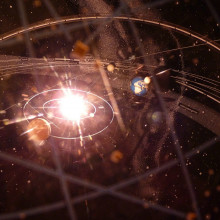
34:09 - Colonise Mars to save the human race?
Colonise Mars to save the human race?
with Ryan MacDonald, Mars One Candidate, Dr Jill Stuart, Editor-in-chief Space Policy Journal, Richard Hollingham, Space Boffins, Carolin Crawford, University of Cambridge
We've discussed the scientific argument for human space travel but what about 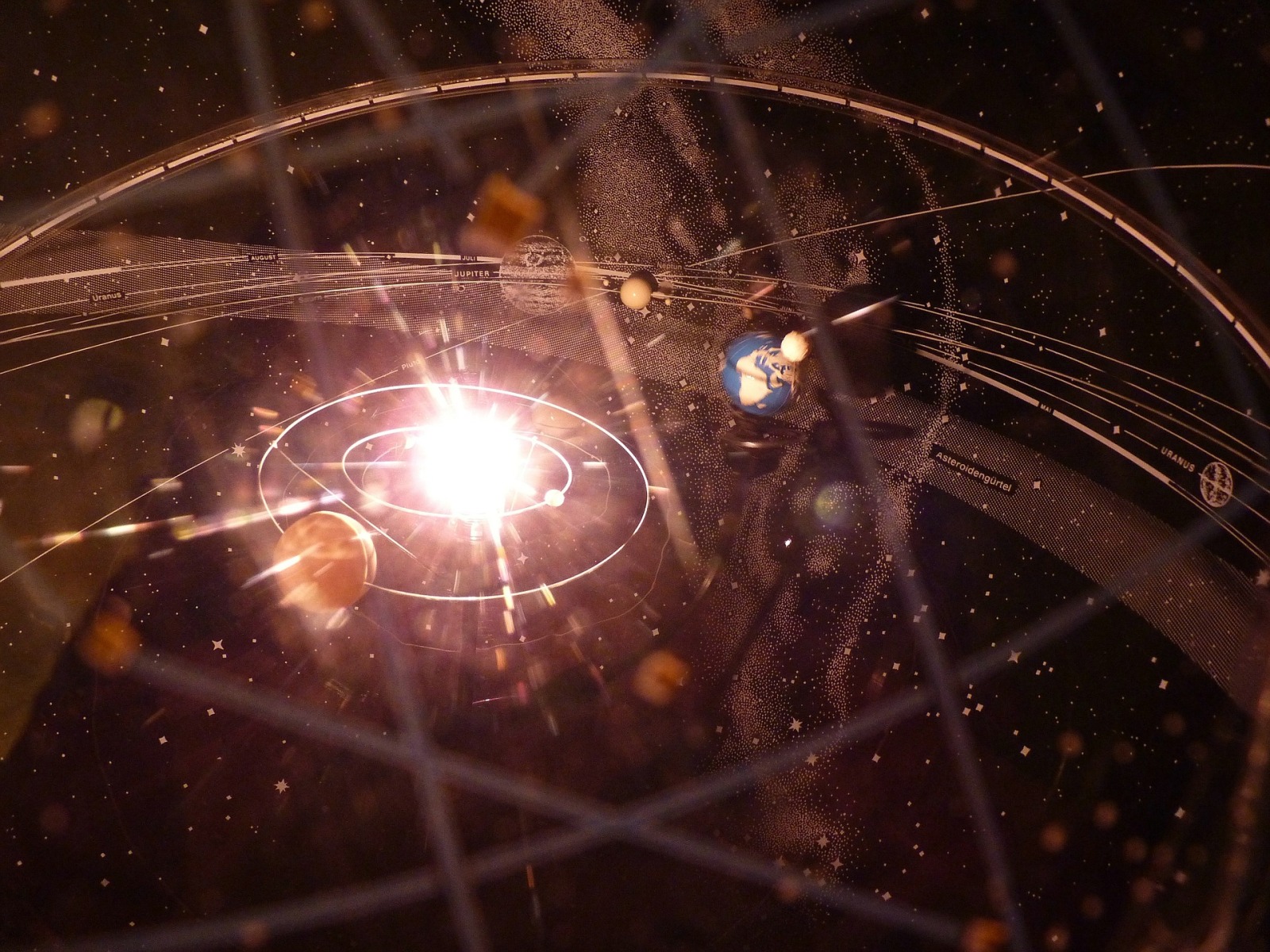 the survival argument? Should we be considering the 'life-boat' scenario to allow us to exist beyond the lifespan of the earth? Chris Smith starts by asking Ryan MacDonald if there is more than science alone inspiring him on his one way mission to Mars.
the survival argument? Should we be considering the 'life-boat' scenario to allow us to exist beyond the lifespan of the earth? Chris Smith starts by asking Ryan MacDonald if there is more than science alone inspiring him on his one way mission to Mars.
Ryan - Well, I think the science is certainly one of the largest driving personal factors and this question of whether we're alone in the universe and, if there is life on Mars, do they share a common origin with life here on the Earth or is it entirely genetically distinct? That's a question that's driven my focus in the science for - well, for as long as I can remember really, it's why I want to work on exoplanets effectively. But I think...
Chris - Planets that are outside our own Solar System.
Ryan - Yes, exactly.
Chris - Yeah, distant planets.
Ryan - But I think it's also, there's the wider picture, which I think is the inspiration factor, which we'll come onto a bit more later...
Chris - The idea that we can establish a home from home on another planet, so that if things really turn nasty here for whatever reason, we can bail out over there. This is sort of dubbed the lifeboat scenario.
Ryan - Well, the worrying thing is that we know from the fossil record that 99.9 per cent of all species that have existed on Earth have gone extinct at one point. And particularly, if we look at the discoveries we've made from statistics from the Kepler space telescope ,looking for planets orbiting other stars since 2009, it seems to be implying that there could be 40 billion Earth-sized planets in the habitable zones of their stars.
And yet, we've not seen any evidence to date of life elsewhere in the universe. So that could potentially mean that we're extraordinarily special. And so, I would argue that we have almost a moral obligation to protect not just ourselves, but life as a whole here on the Earth.
Chris - Jill, where does the politics sit on this?
Jill - With regards to the lifeboat scenario, that is one that's used often to justify the idea that we need to start colonising planets elsewhere. I would just say that I think there's a couple of political and ethical concerns here.
First of all, there are opportunity costs when we spend on going to other planets and it makes me a little bit uncomfortable, the idea that this makes our own planet is disposable or that we're giving up on it. So, I think although I'm generally in favour of space exploration and eventual colonisation, I think that we need to not forget our home planet and the value of that.
Secondly is this issue of the inherent value of landscapes and environments outside of Earth and our obligations to them. So, if we go to a planet, I think there's a sliding scale of ethical obligations to them depending on whether or not it's a dead environment or if there's a biosphere with some sort of life, whether or not they're sentient life, intelligent life. But I don't think we should automatically assume the arrogance of, in order to need to preserve ourselves because we've caused problems on our own planet, on planet Earth that we automatically have the right to go out and colonise other planets as a backup.
Richard - Well, this lifeboat idea, lots of great people have said this. Perhaps Mars shouldn't be the ultimate destination though if you're talking about a lifeboat for Earth and maybe we should think of it as stepping stones. So you go the Earth and you keep the Earth because everyone looks down at every astronaut, all they talk about is not how great the moon is or how great the space station is because it's clearly not, it's how brilliant the Earth is when you look at it.
So let's not forget the Earth. That's really important, but maybe should look at stepping stones. So you say, "Right. We've got the space station" you then go to the moon, you then use the moon to Mars, you then maybe have some sort of giant starship, you start to look at ways of leaving the solar system. Because frankly, Mars is horrible. It's dead, it's barren, it's bleak, it's desolate, there's not enough sunlight. It's rusty, it's a grim place. You would not want to stay there for long.
But if you can use it as a stepping stone beyond that then the lifeboat starts making sense. You start talking about colonies that could leave the solar system and go out to the galaxy, and we could colonise the galaxy, colonise the universe.
Chris - Ryan, it doesn't sound terribly inviting as your future home, the picture that Richard is painting.
Ryan - Well surprisingly, Mars is actually the most habitable planet in the solar system apart from the Earth.
Chris - Haven't got many to choose from really!
Ryan - Just look say, the day on Mars for instance, it's 24 hours with an extra 36 minutes or so. So we don't have to do any incredible crazy engineering like altering the spin of a planet like you'd have to do on Venus.
Incidentally, you're not going to be set on fire immediately on the surface of Mars or be crushed by the pressure like you would on Venus either.
Mars crucially, everything we're learning about it seems to be suggesting that it was a more habitable planet around 3 to 4 billion years ago. Particularly, we've been learning this from Curiosity. And so, with regards to the legal implications potentially of - should we be modifying environments or landscapes on Mars, perhaps we should consider that what we're actually doing is just restoring and fixing Mars to how it was billions of years ago.
Chris - Jill, where do we stand on the idea of the picture that Ryan is painting which is, we go to Mars and we basically mess with it to make it more Earth-like?
Jill - There's a couple of things that come to mind. First of all, I think it's worth questioning who it is that we're going to be sending out with them and they would essentially be the vanguard of humanity. Do we want this to be done by countries or companies and so on?
The other thing is there is a legal infrastructure that's been in place since the '60s and '70s which establishes that outer space is neutral territory including celestial bodies. Specifically that nation states can't make claim to celestial bodies. I don't think that this is going to restrict potential future colonisation and I think that it's an infrastructure that we need to work within. It's governed by 5 main treaties, four of which have been widely ratified.
But we will need to start with unbundling what that means in terms of mining the resources, whether also individual countries are required to be responsible for the objects that are launched into outer space and have legal liability responsibilities in case things go wrong. If we've got humans up there, there's going to be issues like criminal liability. So, there's a lot of legal issues they're going to have to be unpacked and overlapped on top of this pre-existing deep legal infrastructure that we've had in place for the last 50 years or so.
Chris - Mind you if Carolin's robots take over then we may end up having to have robot courts. Carolin, just looking at the practicalities though, it sounds lovely. Let's turn Mars into a home from home by terraforming it. Is that reasonable? Is that scientifically plausible to do that on a scale of a whole planet?
Carolin - I guess it depends how much of a rush you're in. If it really is a lifeboat, well then I think we're a shot because it's going to take - I would guess - several millennia to happen. If you want to terraform a whole planet, you're talking about changing its climate, changing its surface. So not only do you have to thicken, enrich the atmosphere, you have to make it warmer, you need to perhaps introduce some greenhouse gas - methane, ammonia that warms up the carbon dioxide and thickens the atmosphere.
There's a lot that's got to happen and we could do it. I'm not saying it isn't technologically possible. I do share a lot of Jill's reservations about whether we should do it and just all of that.
But a key thing is that Mars does not have a strong magnetic field. It doesn't have the magnetosphere. So, even if you build up this wonderful atmosphere, you warm up the planet, you need to retain that atmosphere.
Chris - I was going to say, how do you stop that atmosphere being whipped away by the very process that has left Mars this prune of a planet that it is right now?
Carolin - As Ryan was saying, Mars was once a much more hospitable planet. It had this thick atmosphere. It had the volcanic activity. We even think it had a strong magnetic field but it doesn't now. And so, you're leaving this wonderful new atmosphere being stripped away.
So perhaps if you're really going to do it, maybe you are going to be terraforming Mars, but maybe not start off with the whole planet. Maybe start off with a few select biomes perhaps as Richarch's suggests, start off with the moon, find a nice crater near some resources, near some sunlight. Do the terraforming or try terraforming in a very local scale within easy reach of Earth and then moving to doing some similar things on Mars, building these biomes, doing things slowly rather than just wading in, and potentially, wrecking a whole planet because again, as Jill said, our track record on Earth isn't brilliant. So, we need to be very sure about what we're doing.

42:31 - John F. Kennedy's moon speech
John F. Kennedy's moon speech
A mission to Mars is regarded by many as the next giant leap. So let's look back at the legacy of the last one... Connie Orbach has been looking at one of History's defining speeches.
the legacy of the last one... Connie Orbach has been looking at one of History's defining speeches.
JFK - But why, some say, the Moon? Why choose this as our goal? And they may well ask, why climb the highest mountain? Why, 35 years ago, fly the Atlantic? Why does Rice play Texas? We choose to go to the Moon! ... We choose to go to the Moon in this decade and do the other things, not because they are easy, but because they are hard; because that goal will serve to organize and measure the best of our energies and skills, because that challenge is one that we are willing to accept, one we are unwilling to postpone, and one we intend to win and the others too.
Connie - In 1962, the then United States President John F. Kennedy gave a historic speech at Rice University, Houston when he announced the USA's commitment to send an American to the moon by the end of the decade. In the 1960s, travel to the moon was just a bigger challenge as the Mars trip seems today. Many of the arguments for and against were the same.
JFK - To be sure, all this costs us all a good deal of money. This year¹s space budget is three times what it was in January 1961, and it is greater than the space budget of the previous eight years combined. That budget now stands at $5,400 million a year--a staggering sum, though somewhat less than we pay for cigarettes and cigars every year.
Connie - Of course, a challenge of this level had more objectives than purely to inspire and the political motives were almost certainly the greatest influence on America's success. The space race became an extension of the Cold War and the Russians had twice beaten the USA. First, with the satellite Sputnik and then with human space flight. Kennedy needed a challenge that he felt he could win to pull the American people together and reaffirm America's status as a leading world power. Today, human space travel is once again on the agenda and the challenge is even bigger. Could it be that we're at the start of yet another space race?
JFK - If this capsule history of our progress teaches us anything, it is that man, in his quest for knowledge and progress, is determined and cannot be deterred. The exploration of space will go ahead, whether we join in it or not, and it is one of the great adventures of all time, and no nation which expects to be the leader of other nations can expect to stay behind in this race for space.

45:32 - Space travel: is it all politics?
Space travel: is it all politics?
with Richard Hollingham, Space Boffins, Dr Jill Stuart, Editor-in-chief Space Policy Journal, Ryan MacDonald, Mars One Candidate, Dr Carolin Crawford, University of Cambridge, Dr Sanjeev Gupta, Imperial College London
Science and survival are not the only reasons for governments to spend money on human space travel, it can also provide benefits at nationwide levels. Our panelists explored the politics and inspiration of space travel, Chris Smith started by asking Richard Hollingham about the impact of the moon landings.
human space travel, it can also provide benefits at nationwide levels. Our panelists explored the politics and inspiration of space travel, Chris Smith started by asking Richard Hollingham about the impact of the moon landings.
(Transcript to follow)










Comments
Add a comment